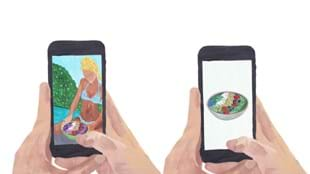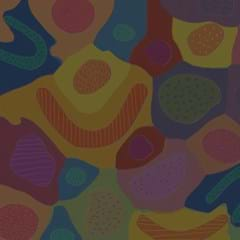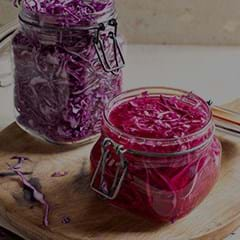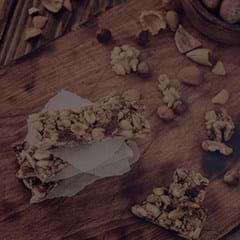MARGO WHITE: What exactly is “cleaning eating”?
SOPHIE MEDLIN: One of the problems with “clean eating” is that it’s not defined, but something that has been sort of invented by bloggers or online communities. For some people it might be eating more fruit and vegetables, for some it might be a raw vegan diet. It hasn’t been scientifically validated or tested, and it has very different definitions according to who you speak to.
We’d never use the term “clean eating” in the scientific community. You might call the people who use it the “non-scientific nutrition” community.
How did it become so popular?
One of the reasons is that the nutritional science has been conflicted about certain things in the last few years, such as whether we should be following a low-fat or low-carb diet. That leaves space for those who can say they know something for sure, even though they aren’t registered, aren’t scientists, have no professional nutritional background, but make a claim with absolute certainty. Science, including nutritional science, is about research and often comes with uncertainty. But then somebody comes along who is being very direct and giving people clear messages – and people like that, they like being told what to do, to feel sure that they’re doing the right thing.
And partly because people promoting these regimes are young, slender, gorgeous, peachy-skinned and shiny haired?
Exactly. I’ve been working with teenage girls looking at, for instance, why they’re switching to plant based milks, away from cow’s milk. And they say that these images of the women, or people, who follow plant-based diets are so appealing. That’s what they’re responding to; “eat like me, look like me”. That’s massive in the target audience, typically young women, and particularly in an Instagram culture, where image is everything.
But some of the basic tenets of “clean eating” make sense, such as cutting down on processed food, and eating more fruit and vegetables. What’s the downside?
The downside is the risk that it demonizes food staples, such as gluten or dairy. If you’re telling people you can’t have milk, then you’re putting people at risk of osteoporosis later in life, particularly young girls. All dietary restrictions have consequences, but these are never discussed.
Also any time people are cutting out different food groups, it can create generalized anxiety around food, or a disruption of their relationship with food, which can escalate very quickly into orthorexia.
Orthorexia, or orthorexia nervosa, is a term used to describe an excessive preoccupation with eating healthy that can have unhealthy consequences. Is it a well-recognized condition in professional circles?
It certainly is. All the big eating disorder centers in London are seeing more and more people with it. Even young women who were involved in the “clean eating” movement have contacted eating disorder clinics with problems. And some, such as the women behind www.notplantbased.com are now writing blogs about how dangerous these restrictive diets can be.
If someone is avoiding social eating, or isolating themselves when they’re eating, that’s a sign that things have gone too far.
As you said, “clean-eating” often promotes plant-based milks rather than cow's milk. Milk is so complicated these days. What’s the best milk?
The best research we have at the moment supports the benefits of cow’s milk in the diet. In the Western world we’re reliant on it in lots of ways. The quality of the protein in cow’s milk is far superior to that found in plant-based alternatives. Plus, you’re getting calcium, magnesium, phosphate, iodine, and many micronutrients not found in plant-based alternatives. There are about 13 different micronutrients in cow’s milk, which we need. And some of them are very difficult to get from a diet that doesn’t include dairy. It’s worth noting that skimmed milk has less fat than, for example, soya milk; many people are switching to a nutritionally inferior alternative because they believe cow’s milk to be fattening.
The UK Osteoporosis Association has called this switch to plant-based milks a ticking time bomb for teenager’s bone health. Really?
Yes. There’s something about milk that is incredibly beneficial to bone health, particularly among children. We know that children who have a cow’s milk allergy and can’t drink milk, their bones will never reach the potential of children who get calcium in their diet from cow’s milk, even when we swap the sources of calcium from milk to things like soya milk, apricots and fortified products.
When you’re under 30, your bones are soaking up calcium, phosphate, magnesium, and getting stronger and stronger, but after 30, it’s downhill. So you have this window in your life to build your bones, and if you don’t, your risk of getting osteoporosis much earlier in life is much higher.
Also, if you’re training and taking steroids, your bone health is at huge risk, which is further exacerbated by cutting out milk.
So cutting out cow’s milk is dangerous? That seems to conflict with just about everything you read online, even in the mainstream press!
I’ve been trying to reason with people on my professional Facebook account about this, and they just say “you’re wrong” or “you’ve been taught wrong” or “your research is wrong”. Nutrition has become a bit like religion in that people don’t want to hear the science. They don’t want to understand it from a broad perspective. They want to stick to their dogma.
And many do seem to have a distrust of science?
Yeah, and those promoting scientifically robust messages don’t have a marketing budget and or a social media presence when compared with a celebrity promoting a product.
What are some of the recommendations made by the “cleaner eaters” that really don’t stack up?
There are so many. The need to avoid dairy, which we talked about, and gluten. Gluten is a tiny protein found in a few grains, and to demonize something that is a dietary staple for so many people, particularly those on a low budget, is arguably immoral. Raw veganism – it’s impossible to meet nutritional requirements with raw veganism. Some clean eaters promote the alkaline diet, which is supposed to prevent excess acidity in the body. The fact is that stomach acid has nearly the same pH as battery acid, and whatever you put in it is turned to acid. Your body works really hard to maintain the pH in your body, and it’s excellent at doing that. What you put in your mouth has no impact on the pH of your body.
If people want dietary advice, where should they get it?
I’d only recommend getting dietary advice from a registered dietitian, because they’re the only healthcare professionals who have studied nutrition and are also trained to give dietary advice.
I’d also recommend referring to national guidelines and policies on different foods. The best researchers write those guidelines, teams of experts who aren’t being paid by industry as people seem to believe they are, by the meat industry or the dairy industry. Government-backed research is not sponsored by industry.
The author Michael Pollan famously said: “Eat food. Not too much. Mostly plants”. What would you say?
I always say to my clients if you’re eating well 80 percent of the time, allow yourself to just enjoy what you eat the other 20 percent of the time. We are social creatures and social eating is very important for our mental wellbeing. We know from research that people with allergies or celiac disease can suffer a poorer quality of life partly because they can’t enjoy social eating in the same way as people who don’t have a food allergy or celiac disease. Partly because they can’t eat certain food, and partly because they’re constantly worried about what they’re eating. And that’s what lots of people who don’t have allergies or who aren’t celiacs are being encouraged to do.
If you cut out the dietary fads, it’s not that complicated, is it?
Dietitians haven’t been saying anything new for a very long time, because nutrition is about balance. It’s not about cutting things out, it’s not about making people feel guilty for eating normal food.
I tend to tell people to base their diet around fruit and vegetables, lean protein, have some nuts and seeds and things like pulses.
I think most people have a good idea of how to eat well. I honestly think that eating is less about what you put in your mouth than about why you put it in your mouth. It’s not that you don’t know that eating crisps or cake is not so good. It’s the “why” and “when” you eat them that you need to examine. If you’re eating cake when you’re out with your friends and having a nice time, then don’t feel guilty about it. If you’re eating a cake on your own at night, because you’re miserable, that’s a problem.
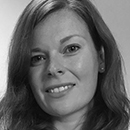
Sophie Medlin is a Lecturer in Nutrition and Dietetics at King's College London and a freelance dietitian. In her clinical practice she works with clients to adapt their diet to their needs, such as managing weight problems or controlling gastrointestinal problems. She’s committed to making evidence-based nutritional information widely available, and has an interactive blog where she covers current nutritional news and investigates claims or questions from followers.
Follow the freshest thinking @fitplanetmag.


